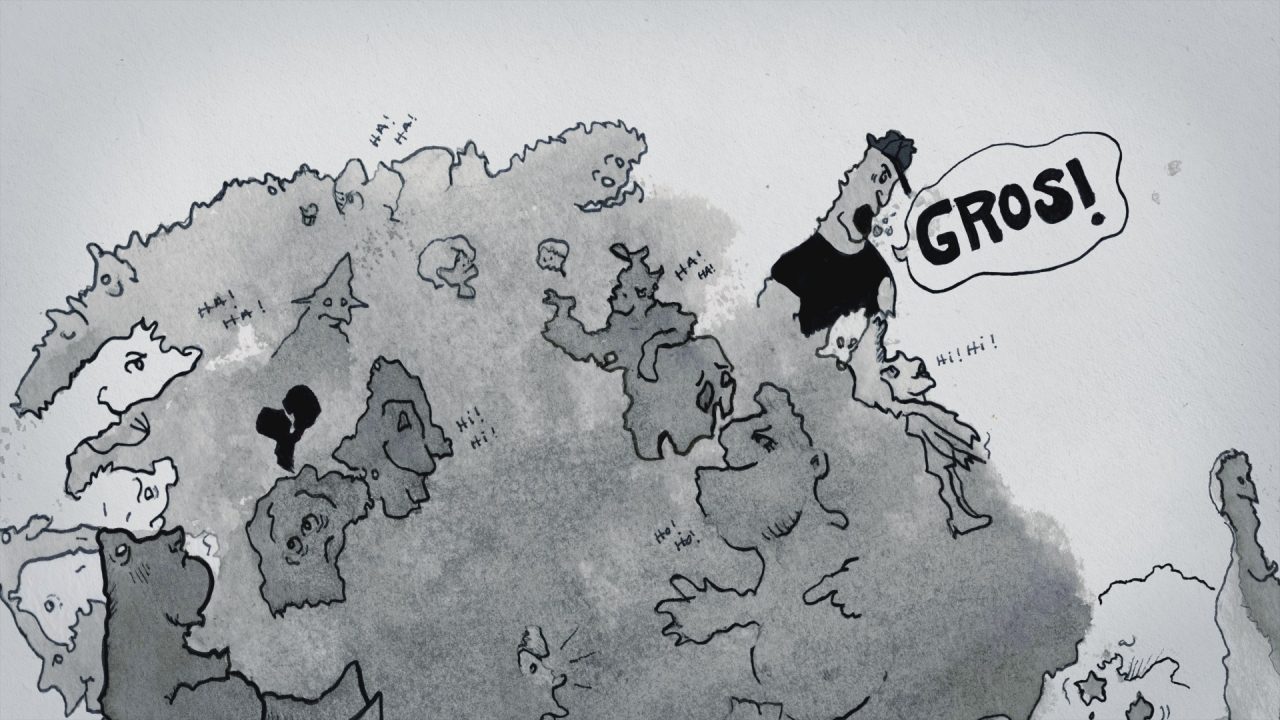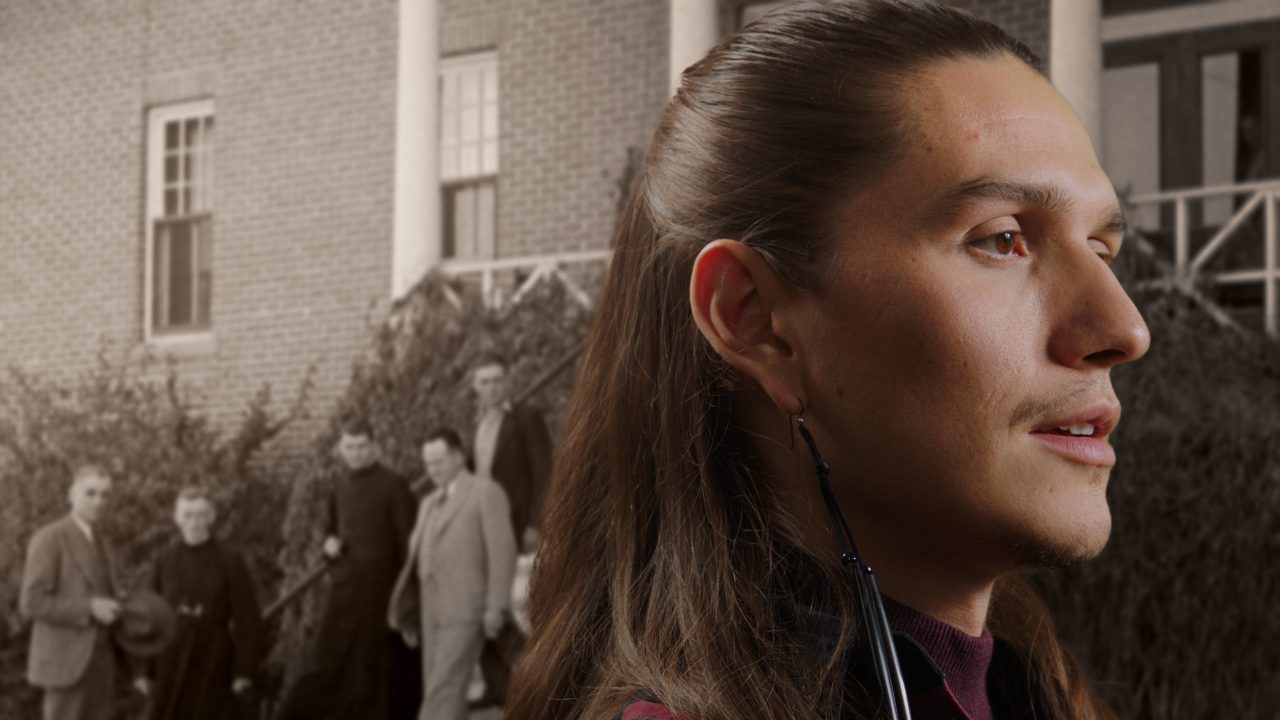
Mini-Lesson for Tales of Ordinary Fatphobia
Mini-Lesson for Tales of Ordinary Fatphobia
Themes: self-esteem, self-acceptance, prejudices, stereotypes, appearance, looks
Ages: 15-17
Tales of Ordinary Fatphobia, Josiane Blanc, provided by the National Film Board of Canada
Keywords/Topics: Self-acceptance, self-esteem, prejudices, stereotypes, appearance, looks
Guiding Question: Think critically about how we perceive people based on looks alone. How might these judgements limit our thinking, and what can we do to change our thinking and the thinking of others?
Summary: Today’s society has many standards when it comes to physical beauty and appearance. People think they’re too large or too skinny, and some resort to plastic surgery to improve their bodies. This film is mainly about the prejudices and stereotypes endured by people of size. It’s a matter of educating the population to accept people of size just as they are, thereby encouraging them to like themselves just as they are.
Before watching the film: Open-ended questions, individual reflection or in groups of two
Before watching the film, ask students to take a moment to think about their own biases towards people of size. What do they think about these people? Do they have any prejudices towards them? Are there any larger people in their circle and how do they see themselves? Are they preoccupied by their physical appearance?
Activity 1: Prejudices and stereotypes
Open-ended questions, individual reflection and in-classroom group activities:
- Discussion in groups of two and then with the whole class: Before watching this clip, what are the prejudices and stereotypes that you’re already aware of in your circle?
- Individually: While watching the clip, try to pick out all the stereotypes and prejudices mentioned in the film. What are the main stereotypes and prejudices towards people of size presented in the video? Provide at least five.
- With the whole class: Make a list of all the prejudices and stereotypes brought up by the students.
Activity 2: Feelings of rejection, low self-esteem, and making efforts to reach their goals
Open-ended questions, individual reflection and small-group activities:
Ask students to think about these questions and then write their observations down in their journals:
- How do the teens in the film feel?
- What are their biggest challenges?
- What do they stop themselves from doing?
- Why are they constantly having to fight against the negative comments and judgements of others?
- Why do they feel so much pressure from the system, despite their efforts to reach their goals?
- How would you feel if you were in their shoes?
- What could we do to help these teens in their quest for self-esteem?
- Have you ever not liked yourself? How did you feel?
- Do you think boys can also experience discrimination and bullying because of their weight?
Go Deeper
Answer the following questions in your journal:
- Why is a person’s weight such a complex issue?
- Do we judge larger people too easily without knowing their story, and why? Develop your answer (approximately 300 words) by adding relevant arguments. You must write three small paragraphs: introduction, development and conclusion. Add linking words to connect your paragraphs and sentences.
Take Action: Positive promotion of overall health and body diversity – Self-esteem
In-class discussion group and awareness-raising campaign
Discuss the following questions as a group to prepare students to create a pamphlet or poster.
- Do you think society puts too much emphasis on physical appearance?
- What positive actions did the people in the film take to maintain their overall health?
- What could we do to peacefully change the stigmatization of people of size?
- What could we do to promote overall health in general, without using physical appearance as a base?
- What actions were proposed in the film to help people of size? Provide three to five examples.
Awareness-raising campaign
Ask students to get into groups of two and create a pamphlet or poster to educate people and raise awareness about fatphobia, which they will present to the class. Examples: accepting body diversity, changing our mentality, eliminating prejudices and stereotypes, fighting the discrimination that exists, etc.
Their poster or pamphlet must contain:
- a catchy title;
- positive thoughts and actions (e.g., finding balance in your life, learning to love yourself, etc.);
- appropriate and interesting images;
- examples for eliminating the prejudices and stereotypes;
- a compelling slogan, e.g., “Live your best life!” or “Find your balance; love yourself just as you are!”
Martine Paquet has been a dedicated teacher with a passion for innovation and creativity for 25 years. This dynamic educator has also become a speaker and seasoned ambassador for the NFB. She has co-authored two research papers and is a member of APTICA (an association promoting the use of information technology in education) and the Atlantic Education Summit. She has taught immersion French and information technology at Moncton High School since 2015.
Consult the Mini-Guide here.
Pour lire cet article en français, cliquez ici.
Discover more Mini-Lessons | Watch educational films on NFB Education | Watch educational playlists on NFB Education | Follow NFB Education on Facebook | Follow NFB Education on Pinterest | Subscribe to the NFB Education Newsletter



